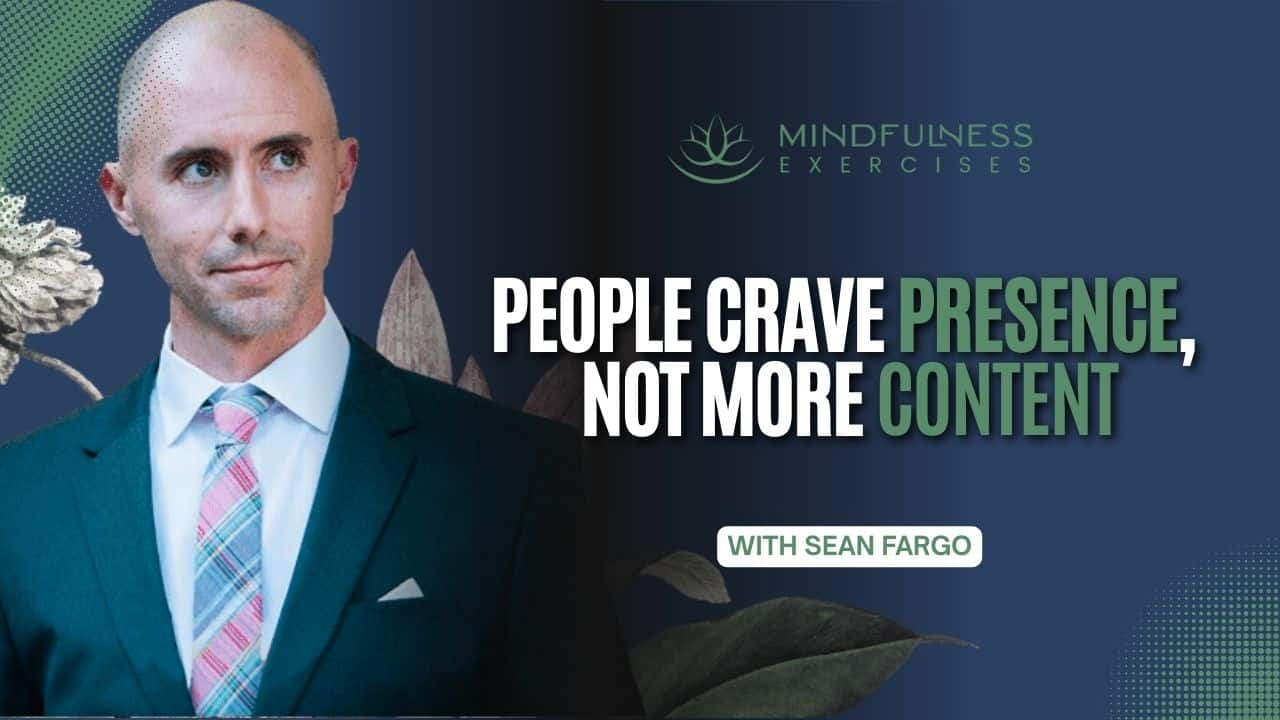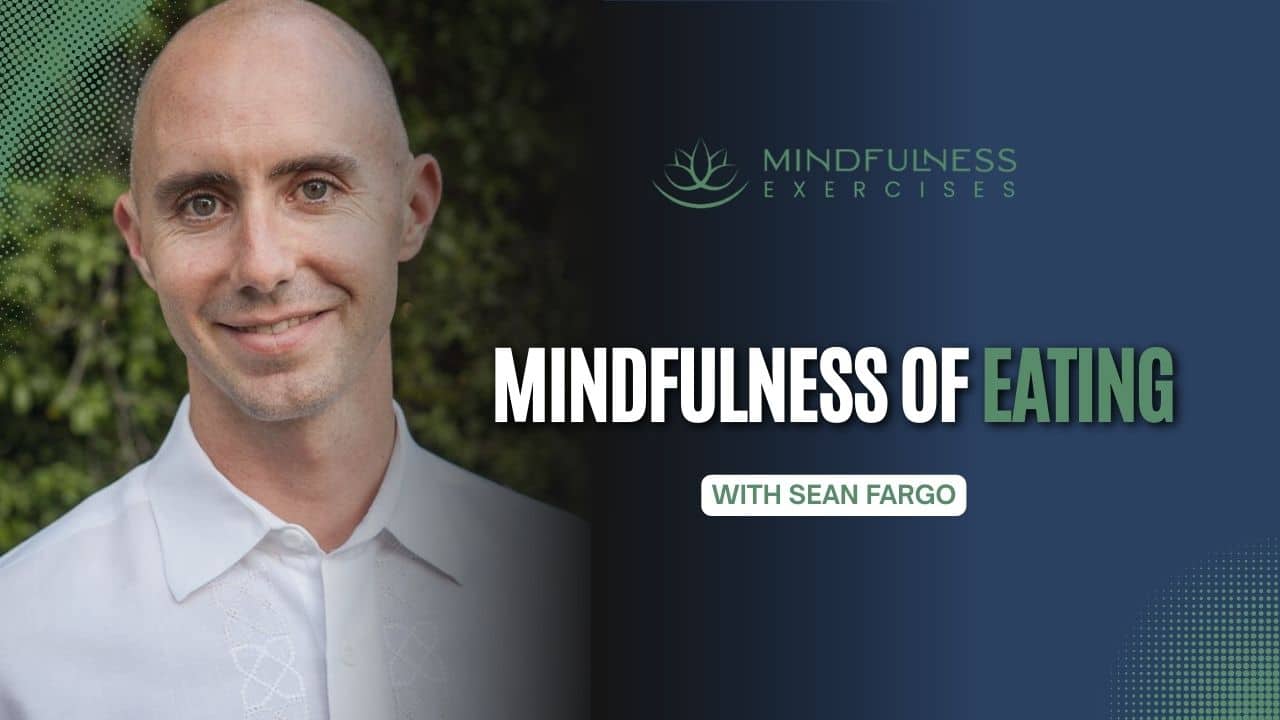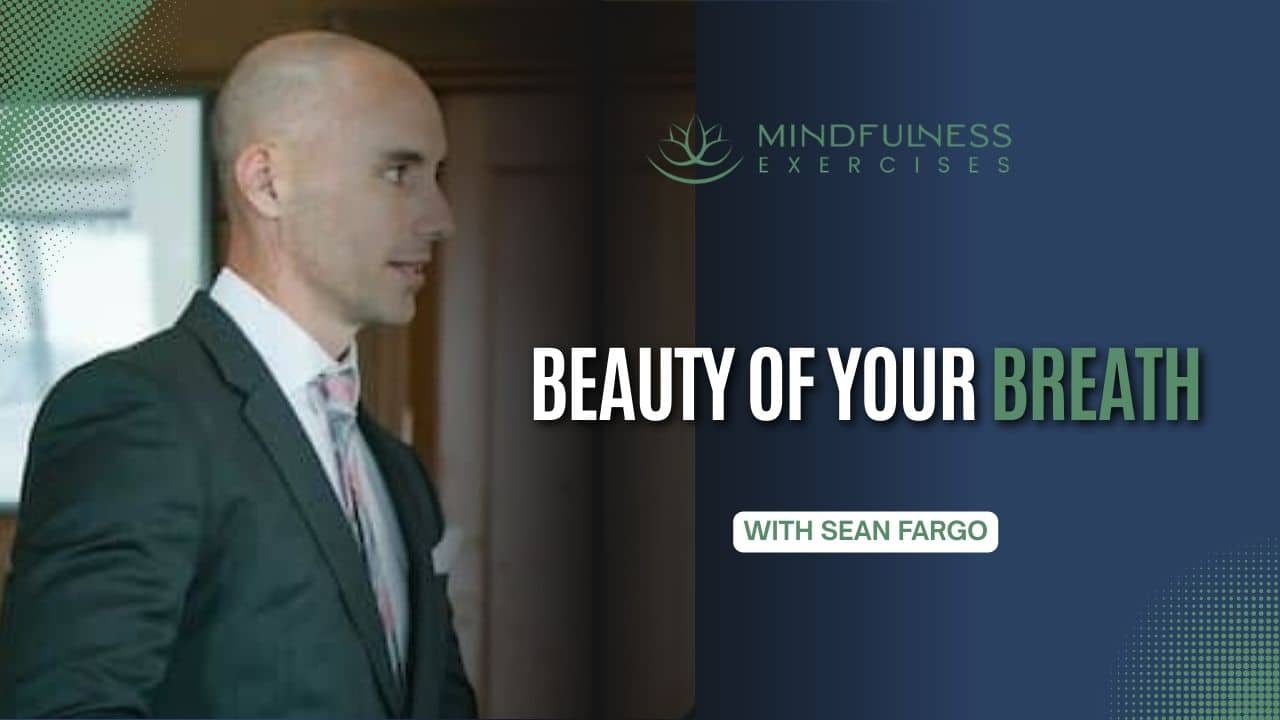Listen now
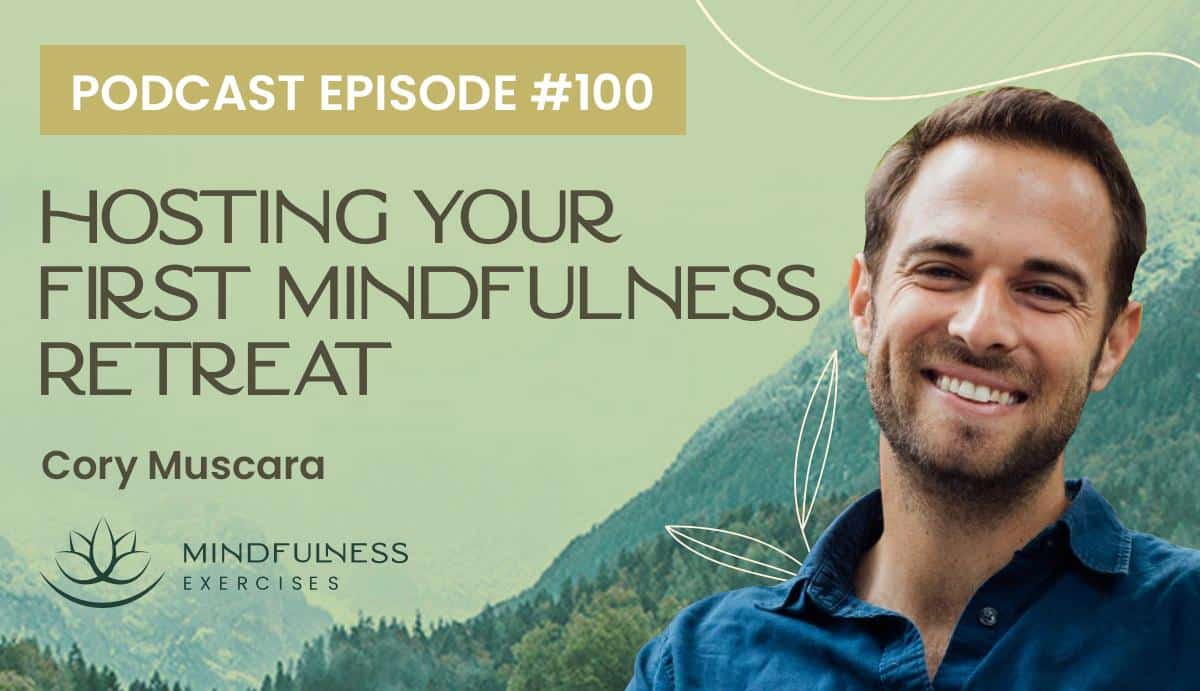
Mindfulness retreats are a valuable opportunity to step away from routine and apply ourselves to deepening our mindfulness. We may devote a single day or multiple days to a retreat, either at home or at a retreat center.
Meditation teachers who have completed retreats of their own know full well the benefits of such focused attention on their practice. However, the thought of guiding others through this intimate, intense experience can be intimidating.
In this episode, we hear from meditation teacher and retreat leader Cory Muscara. Cory offers practical advice on leading meditation retreats and explains why it’s far more accessible than some mindfulness teachers may think.
Sponsored by our Mindfulness Meditation Teacher Certification Program
certify.mindfulnessexercises.com
What You’ll Learn in This Episode:
Show Notes:
Yes, you can lead a mindfulness retreat
Some mindfulness and meditation teachers worry that although they’ve led classes, workshops, or courses, a retreat still feels overwhelming. You may feel you don’t have enough material for several days of instruction, or that the logistics of organizing a retreat are too daunting. Gather the courage to jump in, however, and you may see that leading a retreat is more accessible than you think.
“You do it once, you figure it out, you make mistakes, and it’s not that bad. And so that can be done. If you can run a 3-hour workshop, you can run a retreat. It may be a provocative thing to say, but that was my orientation when I first started doing this. Because I was like, ‘Okay, what is a retreat? It’s essentially a series of 3-hour workshops.’”
What’s different about guiding retreats
Cory finds it helpful to break up his retreats into blocks of meditation, instruction, moments of silence, and meals. If you view a meditation retreat as a series of two-and-a-half-hour workshops, it’s no different than teaching a multi-session course. What does change is the intensity of emotion that can arise when the material is presented in a retreat format. For an experienced mindfulness teacher, however, this too can be met with embodied presence and ease.
“It’s not like you’re going into unknown territory.The only thing that you might get more of is intensity of emotion, but you’ve already navigated that through your own practice.
You know how to navigate it in yourself. And if you’ve been teaching - you won’t want to run a retreat unless you have some teaching experience, so that can become the foundation - but if you’re teaching, you’ve met people in their emotions. And you might have that turned up a little, but it’s a bit of a stretch for your teaching. So, it can be done and you just take it one block at a time.”
The energizing effect of retreats
Even after a 5-day meditation retreat, which requires considerable effort, Cory feels energized instead of depleted. A strong mindfulness practice, embodied presence, and healthy boundaries help him to meet the energy of others, without taking it on.
“I think the main thing I’m trying to say is, it can be fun. It doesn’t have to be this thing that we dread, and it doesn’t have to be looked at like, ‘Oooh, a lot of intensity.’ The intensity is only going to happen in a single moment, meaning, all you’re doing is just meeting people in single moments.”
The business side of mindfulness retreats
Cory is passionate about discussing the business side of retreats, something many teachers prefer not to share. By sharing this information in detail, he hopes to help more mindfulness teachers create a sustainable business. He breaks down the potential income one can earn from running a few 5-day retreats each year.
“Of course it depends on who your students are, the demographic, affluence or not. And, you get to discern if you want to use scholarships or not, but that’s how I started.”
Starting with your current community
What worked well for Cory was to begin with an invitation-only meditation retreat for a small group of his most dedicated students. Because he was inviting students he already had a relationship with, he didn’t need to spend any money on advertising. He chose to make the retreat extra special, a high-end experience that was hard to say no to.
“In general, it’s going to be easier to get a few people to do something at a higher price tag than a lot of people to do something at a lower price tag. Just because you need a bigger audience and a bigger following to do the larger events. […] I said ‘Hey, this is a special invitation, would you like to come? These are the details.’ Most people are honored that you’re thinking of inviting them and if they’ve been with you, they want to go deeper.”
Marketing your meditation retreats
With a social media following of nearly 700,000 people, Cory does little paid marketing. Mostly, he uses his email list to communicate with students. His mindfulness retreats have also grown through word of mouth. On his website landing pages, he finds it helpful to emphasize a range of retreat and self-care benefits, such as reduced stress and improved focus and performance. He finds this information is most easily digested when presented in bullet points.
“People tend to really like ‘You’re gonna get the three steps to reducing stress. You’re going to get the five keys to relaxation.’ I’ve done landing pages without it and with it, and they just convert a lot better when you do it with it. So, it’s a marketing hump you have to get over and find your own voice in that. But yeah, people want bullet points. You know, I’m looking through this fast and just, ‘What am I going to get out of it? I don’t want to read a full thing.’”
The ideal retreat schedule
The first time Cory led a weekend meditation retreat he scheduled practices from Friday evening through Monday afternoon. Since then, he has revised this schedule to better accommodate people’s work lives. He’s gone through a similar process of trial and error with his other retreat formats.
“What I found is that a lot of people didn’t come because of that extra day, and there were a lot of people who can make it work because it was a weekend retreat and they can go straight from work to the retreat and then be done on Sunday. And so, I adjusted it to make it more accessible for people and what I found was that it seems to have been equally impactful, or not much was lost. And if anything, people really appreciate the punchy nature of it.”
Mindfulness retreats as a creative teaching space
Cory describes meditation retreats as a playground. The longer format allows him to bring in new and different methods of teaching mindfulness, within a container of safety and care. He also invites teachers to be creative in how they structure retreats. This may mean hosting multi-day retreats at a community center, for example, but allowing people to return home to sleep.
“How can I curate the most impactful experience, to really take people deep and go into places they might not otherwise be able to go? And that one’s most fun for me. It’s very intimate, I know everyone who’s there. I can track them as we’re going through and they’re very full days. We start every morning at 7am and we go until 9:30, 10pm. So I am on that whole time and all break periods go to planning and prepping, but I love it.”
Considerations around virtual retreats
Offering retreats in the virtual space makes them more affordable and accessible for people, but does warrant some special considerations. For example, you may want to focus on grounding, body-based practices to balance the potentially disconnected energy of meeting people online. It can also help to be especially aware of what your participants may be returning to outside of the sessions.
“I advertise that retreat as retreating into your life, because it’s different than an in person retreat where you’re stepping out of your normal context to go somewhere. It’s like, ‘Oh, this is happening in your home and then you go back to your relationship and making food and on technology.’ And I’ve been running those all through the pandemic, and oh, it’s just been incredible. I’ve been so happy with the impact it’s had for people.”
Encouraging continued practice
You can help your participants sustain the benefits of longer meditations and day-long or multi-day sessions by providing them with resources or access to ongoing courses after their retreat. Offering people recordings of the retreat meditations can also help promote continued practice and integration.
“Part of (sharing resources and courses) does help with getting people to opt in because they feel like they’re getting a lot. But the big reason I do that is because I want people to follow up. And I created a lot of these courses so people would have something after an immersive experience, to ride the momentum of it and have this work to keep their practice going.”
Additional Resources:
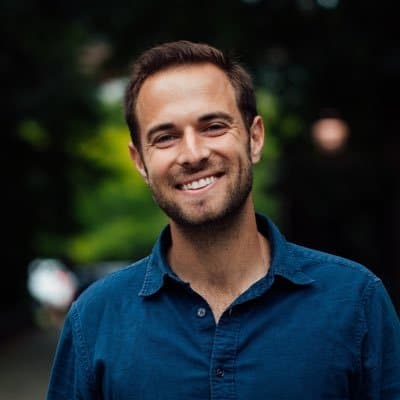
About Cory Muscara:
Cory Muscara is a meditation teacher, host of the Practicing Human podcast and author of Stop Missing Your Life: How to be Deeply Present in an Un-Present World. Cory has taught Mindful leadership at Columbia University, is an instructor of Positive Psychology at the University of Pennsylvania, and for the last ten years has offered mindfulness keynotes, workshops, and retreats around the world to Fortune 500 companies. He is the co-founder of Mindfulness.com, as well as a contributing teacher to the apps Simple Habit, Asana Rebel, 10% Happier, and Grokker.
A graduate of the 2-year Spirit Rock Community Dharma Leader training, Cory also has several years of extensive professional training in Mindfulness-Based Stress Reduction (MBSR), completed certification with Mindful Schools and the Search Inside Yourself Leadership Institute, and has trained in Mindfulness-Based Inquiry, Breathworks Chronic Pain with Vidyamala Burch, the Trauma Institute led by Bessel Van der Kolk, and a relational meditation practice called “circling” through Circling Europe.
In 2012, Cory spent 6 months in silence, ordained as a monk under the late Sayadaw U Pandita within the Mahasi lineage of the Theravada tradition. Today, his meditations have been heard more than 25 million times in over 150 countries, and his goal is to share wisdom teachings in a practical and accessible manner.

